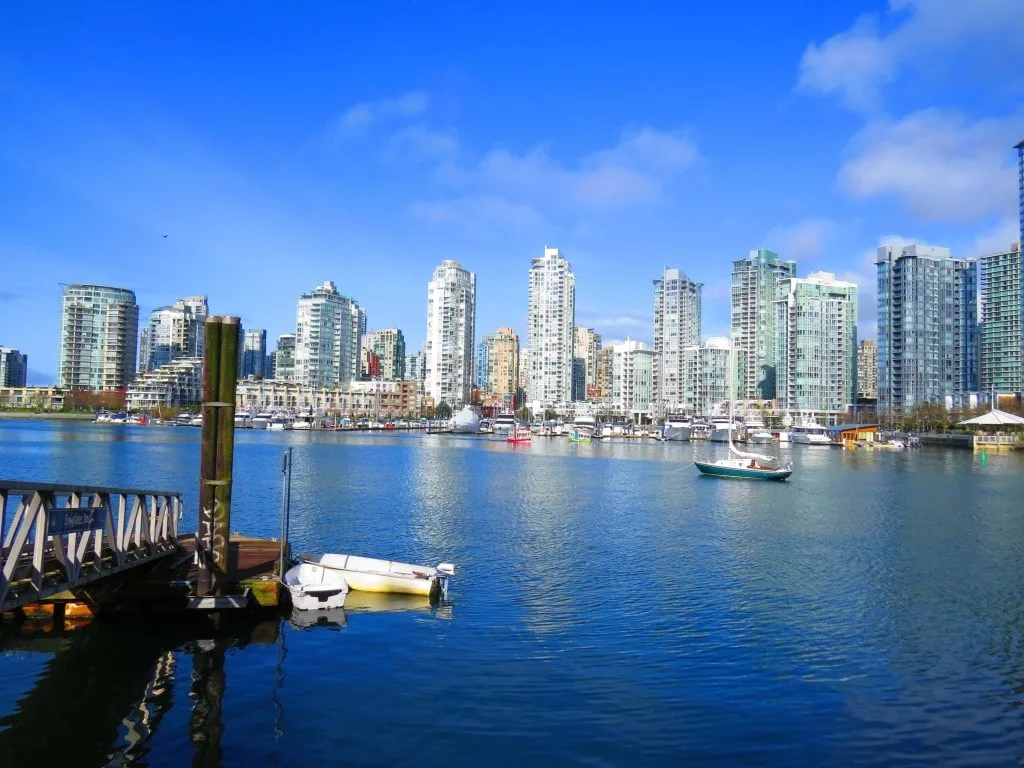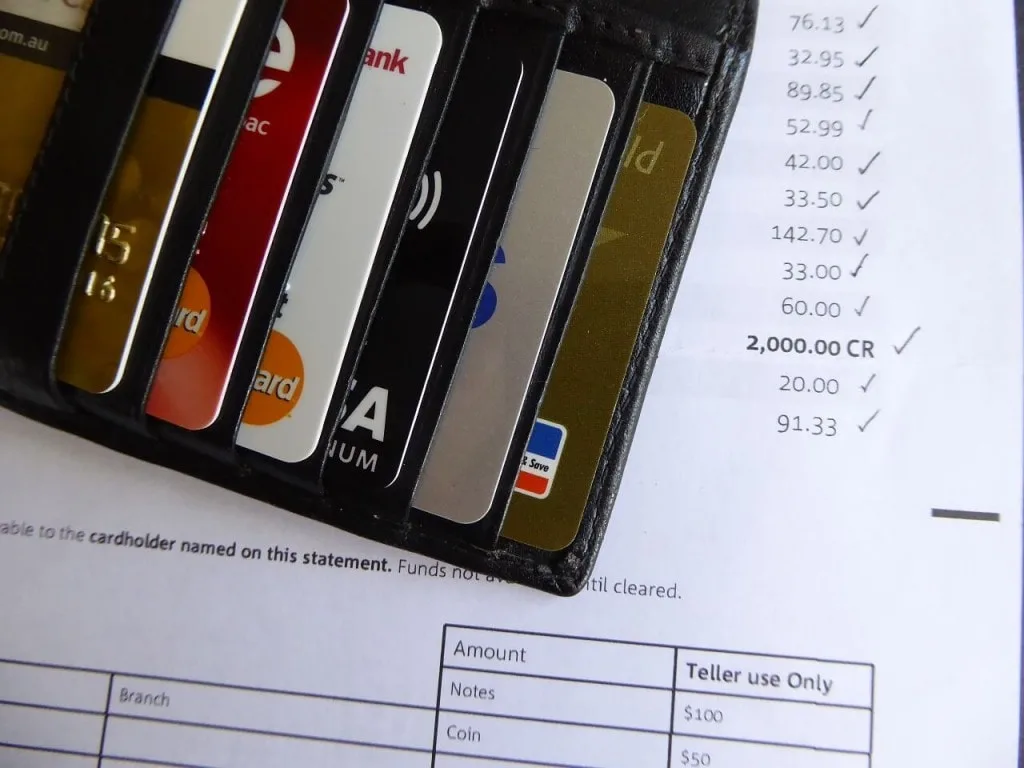Moving on a working holiday in Canada can be very confusing, stressful and at times even frustrating.
We made the big move to Vancouver in March 2016 and started our working holiday in Canada.
When you arrive at the airport for the first time and go through border security, you are issued a Work Permit to begin your working holiday in Canada.
This document is essential! You need it to open a bank account and get a SIN number. So don’t lose it 🙂
Before you are handed this document, you might be asked to provide proof of funds, travel insurance for Canada (we found TrueTraveller and WorldNomads best) and few other documents.
If you are moving from Australia, then Fast Cover insurance has the best coverage for IEC Canada. Whether you are planning to hit the slopes or just want to explore the country, Fast Cover can cover you for the two years required by the IEC.
Moving to Canada on IEC soon? Make sure to join our new IEC Canada Visa group here.
FYI we created a group on Facebook called Moving To Vancouver(click here to join) and moving to Toronto.
This article is also featured in our moving to Canada ebook, pick up your copy here!
Planning to move on a working holiday in Canada?
Make sure to read our Tips For A Working Holiday Visa In Canada.
We have also just finished our moving to Vancouver tips, realisations that happen shortly after you move to Vancouver and moving to Toronto articles.
They cover essential things to know before and just after you made the move.
Six services you can do on day 1 after moving on a working holiday in Canada:
1. Find suitable accommodation.

Vancouver
If you have friends or family members here who you can stay with it make your move much easier and smoother.
If you are in the same situation as us where you have to count on yourself than is best to have something arranged before your arrival. At least for a week or two.
We’ve spent a LOT of time trying to find accommodation in Canada.
Finding a place isn’t always easy, and depending on your budget, it might be stressful to get to the right place.
To start with we went with Airbnb and found a one-bedroom downtown apartment for CAD$2000 a month (and booked it for six weeks).
It’s wise to shop around and ask for deals or discounts on longer term rental. If you are planning on renting through Airbnb, make sure to ask for month+ accommodation as you will normally get a better price for it.
Other options you might want to consider are hostels and hotels or couch surfing. The best websites to go with are Hostelworld.com, Backpackers.Ca where prices range from $10-40 a night or less.
Couchsurfing is also very popular here, and it’s a great way to meet the locals and find out about everything you need to know when arriving at the Country.
If you have not used Airbnb before you can sign up here with our link and get CAD$55 towards your first stay.
Or you can get some of our essential Airbnb tips here.
Other useful sites for longer-term accommodation sites: Craigslist, Booking.com
2. Get a SIM card for your phone.
Google maps will become your best friend in the first days of working holiday in Canada.
The least fun part of finding yourself in a new place is not knowing where to go or how to get back home.
Getting a SIM card is essential. You should organise it as soon as your jet lag wears off.
Make sure your mobile phone is unlocked.
There are several providers that you can go with.
Here in Vancouver, we checked three different services:
Bell (expensive) where you can go prepaid, basic plan or share plan.
The important thing to note for all providers is that you pay less if you come with your phone instead of getting a new one in the store. All new phones are locked (unless you buy one in Apple or Samsung store).
Bell does have excellent phone coverage, and if you are planning on moving a lot, it’s a great way of keeping same phone number instead of switching every time you move (different cities have different codes). They do different plans, but the basic package starts with $45 but with very little data.
With Fido for $45, you get one gig of data (usually 500 megs but when we were there they had a special deal on) 500 minutes and unlimited messages and international text messages.
Wind Mobile (now called Freedom Mobile) does the most of the data plans, and for $40 you also get unlimited Canada calls and Worldwide texts as well as 3-5 gig data.
With all providers, you get monthly billing and can cancel your plan anytime. Think of them as rolling contracts.
Our advice is to check and compare a few out before deciding which mobile company to go with.
3. Open a bank account.
There are many banks in the CBD you can choose from. We were recommended TD Bank, Tangerine, CIBC and Scotia Bank.
If you are looking for a more detailed post on banking in Canada read our article on best banks in Canada.
We went with TD as they have no bank charges for the first six months and the bank account is very simple to set up. All you need is your passport and work permit.
*Update after six months with TD we moved to CIBC and got a year ‘no fee’ account with them. So technically we got one and a half years no bank fees. #winning
Typically a few minutes later you are issued with an account and debit bank card to use immediately.
You have to book an appointment to chat with one of their consultants.
If you are lucky, you can get the appointment scheduled for the same day.
Most bank cards do not have your name on the actual card.
If you do require one, you need a permanent address where the card can be issued to you (takes about two weeks).
To set up an account in Tangerine Bank you must have either a Canadian ID or another bank account in Canada to prove your identity. Although this might change depending on when you arrive.
This bank won’t charge you for a year similar to Scotia Bank.
Again the best option is to go to a few of them check out their offers and special deals they might have at the time.
After opening a Canadian account, we used CurrencyFair for money transfers to get the best exchange rate.
You can find out more about money transfer reading the International Money Transfer Guide.
With CurrencyFair you get first five transfers free if you sign up via our link.
We have also created this guide on the cheapest way to send money to Canada from abroad.
4. Get a SIN number.
SIN or Social Insurance Number is a nine-digit number that you need to work in Canada or to have access to government programs and benefits.
To apply for it, you need your passport along with work permit. Your SIN number is valid for the length of your permit (you can, however, extend it if your circumstances change).
To obtain it go to Service Canada Office.
You can see where the nearest one is here. It only takes about 30 minutes to get it (depending on the queue).
It is worth getting it as soon as you can on a working holiday in Canada.
5. Apply for a BCID.
BC ID card (applies to British Columbia and can be different for other states) is issued to you via post.
BCID Takes about two weeks to be delivered. Well worth getting!
To get it you need to go to ICBC Centre with passport, work permit, SIN Number and permanent address. The fee is currently at $35.
This card is very useful as many places do not accept Id’s from foreign countries.
A lot of bars and clubs require one or even two forms of ID and carrying your passport on a night out is just asking for trouble 🙂
To find out more about BCID go to ICBC or click here.
6. Start looking for a job.
Working holiday in Canada will have different job opportunities depending on what city or state you go to.
It didn’t take us long to find a job here in Vancouver.
The first place we emailed, I got a phone call, a two-stage interview and finally a job.
Our best advice is to ask around.
Sign up for as many Canada Facebook groups as possible and check Craigslist regularly.
Email or call as soon as something suitable comes up.
Pin this image to your Pinterest board:

Pin Me.
You can read how to send money to Canada. It will save you a LOT of money in bank charges.
Other useful links:
Airbnb – We love Airbnb and use it everywhere you travel! If you are new to Airbnb follow the link for $55 discount of your first stay.
Booking.com – Perfect alternative to Airbnb when you need a short place to stay.
Hostelworld – If you need a cheap place to stay where you can meet other travellers, Hostelworld is the best.
Scotiabank unsecured credit card – You will need a credit card in Canada! Scotiabank have a great one specifically for travel.
CurrencyFair – Our favourite money transfer company. They are 8x cheaper than banks. Follow the link for 5 free transfers with CurrencyFair.
OFX – Another great money transfer company for larger transfers. We use them for large lump sums. Follow the link for free transfers for life over 1k.
WorldNomads and TrueTraveller – The best travel insurance companies on the market! We personally used them both and can highly recommend them.
Taxback.com – Every time we have to do our taxes or claim Superannuation we use these guys.
Sendmybag – Best company to ship your excess luggage to and from Australia. Follow our link for 5% discount of your shipment.
Skyscanner – Our go-to tool for finding cheap flights.
Social media are best to find a job along with websites such as Indeed, Craigslist or Canada jobs.
Also, don’t forget about recruitment agencies within your area and make sure to have your LinkedIn profile updated.
We wish you the best of luck with your working holiday in Canada.
Read our articles next if you are moving to Toronto or moving to Vancouver
If you are moving soon make sure to check out ‘Moving to Canada FAQ’s‘.
Are you new to Canada like us? Make sure to connect and check us out on Instagram and Facebook.
Have you moved to Canada? Share your story with us and we might feature it on our blog. Contact us here.
